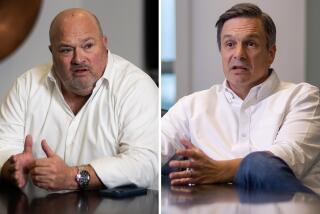Of Crazy Charlie and Crimes Against Children
I knew a man a long time ago who liked to “touch” little boys. It was a term parents used to describe what would be known today as child molesting.
We were all aware of the guy as kids and avoided him as though he were a leper. Privately, we called him Crazy Charlie and warned anyone new in the neighborhood to never go near him.
Oddly, no one ever turned him in to the police, even the parents of the kids who had been subjected to Charlie’s abuse. We simply understood, as a gazelle understands a lion, that he was not to be trusted.
Charlie was married, but hardly anyone ever saw his wife. They lived in a small, dark house at the end of the block. Some said they’d had a son who died young, and people in the neighborhood speculated that was what drove Charlie over the edge.
I guess it was on that basis that we forgave the man his craziness, but as it turned out, Charlie just couldn’t forgive himself. One soft summer night when we were playing kick the can near Charlie’s home, we heard a loud bang.
Neighbors rushed to the house and found him lying on his bed, an old World War I pistol at his side. His wife was in a chair nearby, as cold and silent as stone.
Every kid on the block crammed into the house to look at Charlie’s body. We felt sorry for him in a way, except for one boy, who’d been one of Charlie’s victims.
He had a look on his face I can see to this very day, full of hatred and anger. He held it for a long time, just staring at the body, until the police came and chased us out. We went back to playing kick the can and wondered if Charlie was in hell.
I hadn’t thought about Charlie until the other day when federal investigators announced they’d charged 89 people with belonging to an online pornography ring. The FBI said that 27 of them had admitted molesting children. This brought back a clear image of the guy who, back in our neighborhood, had “touched” all those little boys.
Crazy Charlie could have been among the 89, a number that included Little League coaches, members of the clergy, a school bus driver and at least one police officer. They are all someone’s neighbor and so was Charlie, even though we were wise to him.
Looking back through our newspaper files, I discovered how many child molesters, or accused child molesters, are in positions of trust and responsibility. I suppose you could say that Catholic priests are among the most trusted because they claim to be agents of God, a declaration that has lost a lot of its luster in recent weeks.
But they aren’t alone. Here are some headlines from the past few months:
“Rabbi Accused of Molesting Young Male Students”
“Judge Charged With Molesting Boy, 12”
“Therapist Charged With Molesting Girl”
“School Trustee Accused of Molestation”
“Band Teacher Accused of Molesting Girl”
Foster parents, a Boy Scout leader, a disc jockey, a day-care worker, a stepfather, a janitor, an Army recruiter, a nurse, an attorney, a grandfather, a school board member.
They seek out not only those within their immediate range, like a boy in the choir or a little girl next door, but now prey upon children through cyberspace, like digitally created monsters prowling the night. But they aren’t cartoons and they don’t look like monsters. Unlike Crazy Charlie, they seem to be the kind of people whose hand a small child might willingly take.
The victims of molestation often grow to adulthood burdened by feelings of guilt and shame. Their legacy is not only a shattered trust, but in the odd juxtaposition of human victimization and response, they too sometimes become molesters.
Encino family therapist Michael Aharoni speculates that a child robbed of his dignity by sexual abuse sometimes seeks to regain his power by abusing.
“That’s what molestation is all about,” he says. “Like rape, it’s not about sex but about power and the abuse of power. Victims of molestation are apt to become sexually repressed and unable to trust an adult relationship. So they seek out children.
“In most ways,” he says, “they’re normal people, and I don’t want to let them off the hook by saying they’re sick. They made a decision to do something harmful, and we need to punish them for their behavior. I don’t want them to get away.”
I agree. Crimes against children claw at the very nature of humanity. Molestation creates distrust not only in its victims, but in the body politic as a whole. We already distrust leadership. Are we now to distrust our moral counselors?
“What loneliness,” asked the writer George Eliot, “is more lonely than distrust?”
The question resonates through a culture in turmoil, and no one seems to have the right answer. But I keep seeing that dark and angry face of a young boy staring at the body of Crazy Charlie, and all these years later, the rage still comes through.
*
Al Martinez’s column appears Mondays and Thursdays. He’s at [email protected].
More to Read
Sign up for Essential California
The most important California stories and recommendations in your inbox every morning.
You may occasionally receive promotional content from the Los Angeles Times.










